(617) 436-5592
When Death Occurs
No matter if a death is sudden or if it was a long time coming, the loss of a loved one makes us feel emotional and overwhelmed. No amount of preparation can fully prepare you for the loss of a loved one. When you are in a heightened emotional state, even the most basic decisions can seem staggering.
When the Time Comes: A Survivor's Guide
At the Time of Passing - When a death occurs the order of what needs to be done often depends on where the death happened.
At Home or Work
If a death occurs at a nursing home, hospice, residence or hospital and the deceased is under a physician’s care, then the family, the nurse or professional staff can contact Floyd A.Williams Funeral Home. It is a good idea to leave the funeral home’s name and number with the facility responsible for caring for your family member.
During the initial call, the funeral director will gather some general information so that we will be able to transfer your loved one into our care at the funeral home. The funeral director may ask you several questions, including whether you made any pre-arrangements. The director will also schedule a date and time for you to meet at the funeral home and will let you know what you should bring.
At a Medical Facility
During the initial call, the funeral director will gather some general information to be able to transfer your loved one into our care at the funeral home. The funeral director may ask you several questions, including whether you made any pre-arrangements. The director will also schedule a date and time for you to meet at the funeral home and will let you know what you should bring.
Under a Physician’s Care
We are here to help and answer any questions you may have regarding the funeral process for your loved one. We strongly encourage our families to prepare a list of questions and concerns. Your funeral director will guide you and be a resource throughout the process. The funeral is for the family and friends and it is your input that makes it a meaningful experience.
If a death occurs at home or another facility and the deceased was not under a physician’s care then the authorities need to be notified and come to the location before we can transfer your loved one into our care. If you have questions or are unsure how to handle the situation you can always call Floyd A. Williams Funeral Home and we will help.
Call us at (617) 436-5592. We are here to help any time of day or night.
Informing a Funeral Director
Once everything has been cleared with the proper authorities, the next call you place should be to a licensed funeral director. Funeral directors are here to help you obtain a death certificate, transport the body, and in the event pre-planning was not done, select a casket/urn and arrange the funeral/memorial service. The funeral director will also help you notify the employer and insurance company of the deceased to assist with those arrangements. Funeral directors are here to help advise you and will work very hard to relieve the stress of logistics involved in funeral planning.
Meeting a Funeral Director
You should meet with a funeral director within 24 hours of a death to begin to make final arrangements for your loved one. Deciding on these final arrangements may seem like a very daunting task, especially when you are in heightened emotional state, but funeral home staff have years of experience dealing with these issues and strive to ensure everything goes as smoothly as possible.
Making Arrangements
Things to bring when making Funeral Arrangements:
Clothing
A recent photo of your loved one
Personal information for the death certificate
Social Security number
Parent’s names (including mother’s maiden name)
Date of birth
Work history
Address
Education
See our Death Certificate sheet under helpful forms
Military Discharge papers if a Veteran
Insurance Policies
Questions
First the Funeral Director will gather information required for the death certificate. This includes:
Full Name and Address
Marital Status
Race/Ethnicity
Date and City of Birth
Highest Level of Education
Father’s Name, Mother’s Name (including maiden name)
Name of Spouse (if married or widowed)
Occupation and Employer
The funeral director will also need pertinent documents required to do all the legal paperwork, those documents may include:
Account Statements
Beneficiary Designations
Life Insurance Policies
Real Estate Deeds
Car and Boat Deeds
Stock and Bond Certificates
Pre-Nuptial Agreements
Post-Nuptial Agreements
Loans and Leases
Copies of Bills (Hydro, Cable, Phone etc.)
Last Will
Tax Returns
If no pre-planning has been done, necessary arrangements need to be made for the funeral service. These include:
Scheduling the location, date and time of the visitation and funeral service
Selecting burial or cremation
Choosing Funeral Products
Arranging a cemetery plot
Preparing an obituary notice
Scheduling transportation arrangements





